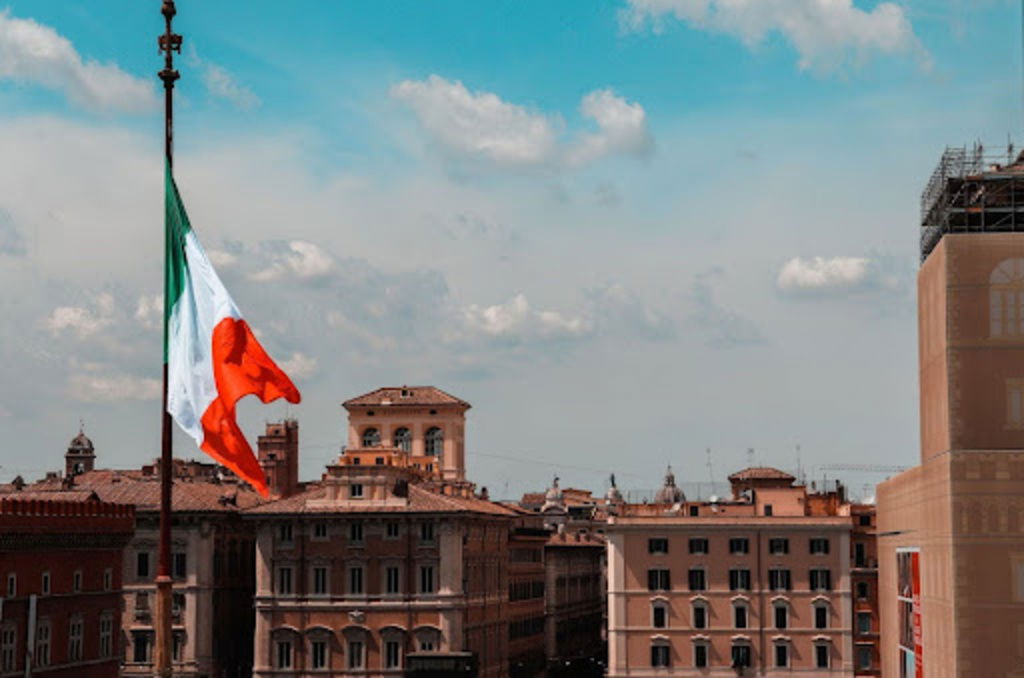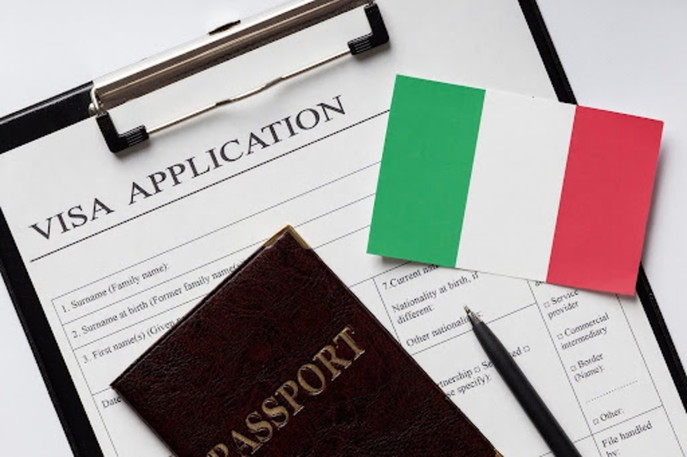Italy has a rich history of educational excellence, with some of the oldest universities in the Western world founded in the 11th century. Combining ancient traditions with modern innovation, Italy offers a variety of academic programs that cater to diverse interests and career goals.
Beyond academics, studying in Italy comes with the added charm of its rich cultural heritage, stunning landscapes, and world-famous cuisine, making it an experience of a lifetime.
For non-EU students, achieving this dream starts with securing a student visa. This step-by-step guide will help you navigate the application process, understand the required documents, and provide insider tips to ensure a smooth path to studying in Italy.
Why Italy?

Italy is a top choice for international students worldwide, offering a rich blend of academic excellence and cultural exploration.
With strong partnerships between Italian and international institutions, students benefit from diverse perspectives and cross-cultural exchange.
Italian universities consistently rank high globally, with the country placing seventh in Europe and 14th globally in QS rankings in 2022 and second in Europe for top-ranked degree programs.
Beyond academics, Italy ensures equal access to education through the Right to University Study (DSU), supporting students from all economic backgrounds.
Studying in Italy can be about experiencing a unique journey of learning, culture, and opportunity.
Who Needs a Student Visa?
If you're a citizen of an EU/EEA country, you're not required to apply for a student visa in Italy. However, non-EU students will need to apply for a visa if they plan to study for more than 90 days.
For short programs (less than 90 days), you’ll need a Short-Stay Visa (Type C), but for undergraduate and graduate courses lasting more than 90 days, you’ll need a Long-Stay Visa (Type D).
Step-by-Step Guide to Applying for a Student Visa
1. Secure Admission to an Italian University
Before you can begin the visa process, you must first apply and be accepted into an Italian university. Once accepted, you’ll receive an official Letter of Acceptance, a key document for your visa application.
Italy boasts a diverse selection of universities covering fields such as art, design, engineering, business, and more, offering world-class education paired with a vibrant cultural experience.
Some of Italy's best business universities include the LIUC - The Business University, MIB Trieste School of Management, and Ca' Foscari University of Venice.
Be sure to apply well in advance to leave enough time for your visa process post-acceptance.
2. Gather the Required Documents
To ensure a smooth process, make sure you have the following documents ready when applying for your visa.
Your Checklist:
- Visa Application Form: A completed and signed application form is available on the official visa portal.
- Entry Visa Application Form: Ensure the correct visa application form is submitted.
- Passport: A valid travel document with at least two blank pages, expiring no less than three months after your intended stay.
- Recent Passport-Size Photograph: Ensure the photo meets Italian specifications, typically 35mm x 45mm.
- Letter of Acceptance: Proof of enrollment or pre-enrollment in an Italian university program.
- Accommodation Proof: Evidence of living arrangements in Italy (e.g., a rental agreement or university housing confirmation).
- Financial Proof: Bank statements, scholarships, or proof of financial sponsorship demonstrating sufficient funds (a minimum of €467.65 per month or €6,079.45 annually).
- Health Insurance: Documentation for medical treatment and hospitalization insurance coverage (approximately €150 for the first year of study).
- Flight Itinerary: A copy of your round-trip flight details (if applicable).
- Proof of Knowledge of Italian or English: Depending on your course language, you may need to provide language test results or evidence.
- Proof of Financial Means for Repatriation: Documentation showing you have the financial means required for your return.
Tip: Double-check specific requirements with your local Italian consulate or embassy, as they may vary slightly by location.
3. Determine When and Where to Apply
Applications for Italian student visas are submitted through your home country’s Italian embassy or consulate. Visas cannot be applied for within Italy, so ensure you handle this step at a local consular office. It's recommended to apply for a student visa at least 3 months before you arrive in Italy.
To locate your nearest consulate, visit the official Italian Ministry of Foreign Affairs website.
4. Apply Early and Schedule Your Visa Interview
Securing your visa on time starts with applying early and scheduling your interview as soon as possible.
During your interview, consular officers will verify your application, evaluate your purpose for studying in Italy, and ask about your academic plans. Be honest and organized when presenting your documents.
Tip 1: Sample Interview Questions
Below are some examples of typical questions you may be asked during your visa interview to help you prepare effectively:
- Why do you want to study in Italy?
- Which language course will you follow?
- How long do you want to stay in Italy?
- How will you financially support your stay in Italy?
- Have you visited Italy before this trip?
- What will you do after the language course?
Tip 2: Excelling in Your Italy Student Visa Interview
Securing an Italy student visa interview is a big step, so preparation is key. Here are quick tips for success:
- Stay calm: Treat the interview as a conversation.
- Dress smart: Look neat and professional.
- Be punctual: Arrive early.
- Answer clearly: Be concise and relevant.
Follow these tips to boost your confidence and secure your visa!
5. Italy Student Visa Processing Time
Italy visa processing typically takes 15–20 working days (3–4 weeks) from the date of application.
Processing times may vary depending on the specific Italian Consulate or Embassy and can be longer during the university application season due to higher application volumes.
Additional Tips for a Successful Application

Language Skills
When applying for a study visa to Italy, there are no strict language requirements. Consulates generally do not require proof of language proficiency as language skills are assessed as part of your university admission process.
However, demonstrating even basic conversational Italian during your visa interview can make a positive impression. For instance, introducing yourself or saying "hello" in Italian can showcase your commitment to adapting to the local culture.
If you’re applying for an English-taught degree, you’ll usually need to show proof of English proficiency. Accepted tests often include IELTS Academic, PTE Academic, and TOEFL iBT.
Be sure to check which tests are accepted by your university before scheduling your exam.
Avoid Common Mistakes
- Ensure your documents are complete and up-to-date. Missing paperwork is the most frequent cause of visa rejections.
- Be prepared to explain your financial resources and study intentions in detail.
Appeal for Rejected Applications
If your visa application is denied, you can challenge the decision by submitting an appeal to the Regional Administrative Tribunal within 60 days of notification. You’ll need a lawyer to move forward with this process.
What to Do After Visa Approval
Once your visa is approved, it’s time to start preparing for your time in Italy!
Arrival and Residence Permit
- Upon arrival, all non-EU students must apply for a residence permit (permesso di soggiorno) at an Italian post office within 8 days.
- Required documents include a copy of your visa, proof of accommodation, and your enrollment details.
Getting Settled
- Register with Local Authorities: Declare your presence at the local police department (Questura).
- Set Up a Bank Account: Opening a local account can simplify payment processes for rent, tuition, and daily expenses.
- Explore Italy’s Beauty: Take advantage of Italy’s low-cost transportation and immerse yourself in its scenic landscapes and history-rich cities.
Check out 30 fascinating facts about Italy that will inspire and engage any student discovering this amazing country.
Explore Exciting Study Programs in Italy
Whether you're interested in studying arts and design in Florence, business and economics in Milan, or history and archaeology in Rome, our programs are designed to cater to diverse fields and academic interests.
Each program combines world-class education with immersive cultural experiences, giving students the unique opportunity to truly live and study like a local.
If you’re ready to explore these amazing opportunities, check out the programs we offer in Italy, where you can browse detailed information on courses, application processes, and the benefits of studying in this incredible country.
Your Study Abroad Adventure Awaits!
Applying for an Italian student visa may seem like a lengthy process, but with careful preparation and early action, it’s entirely manageable.
Following these steps ensures you’re on the right path to experiencing Italy’s high-quality education and unparalleled culture.
Do you need extra guidance? Reach out to one of our experienced advisors for help and support. Begin your application early and get ready to make your dream of studying in Italy a reality.

